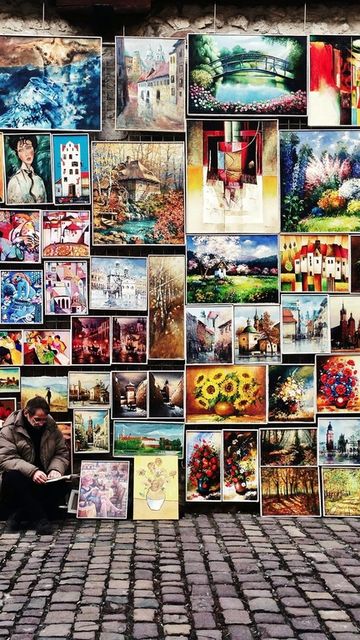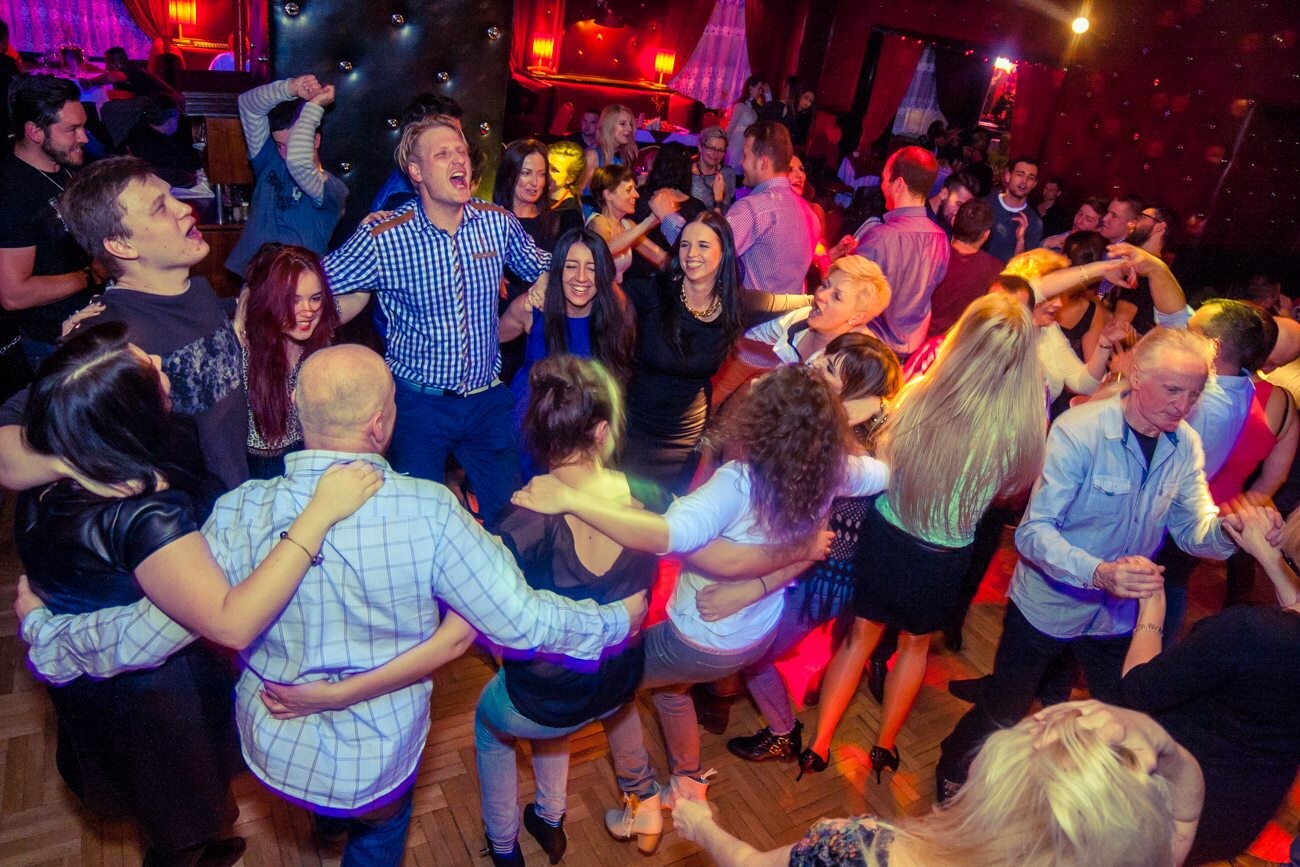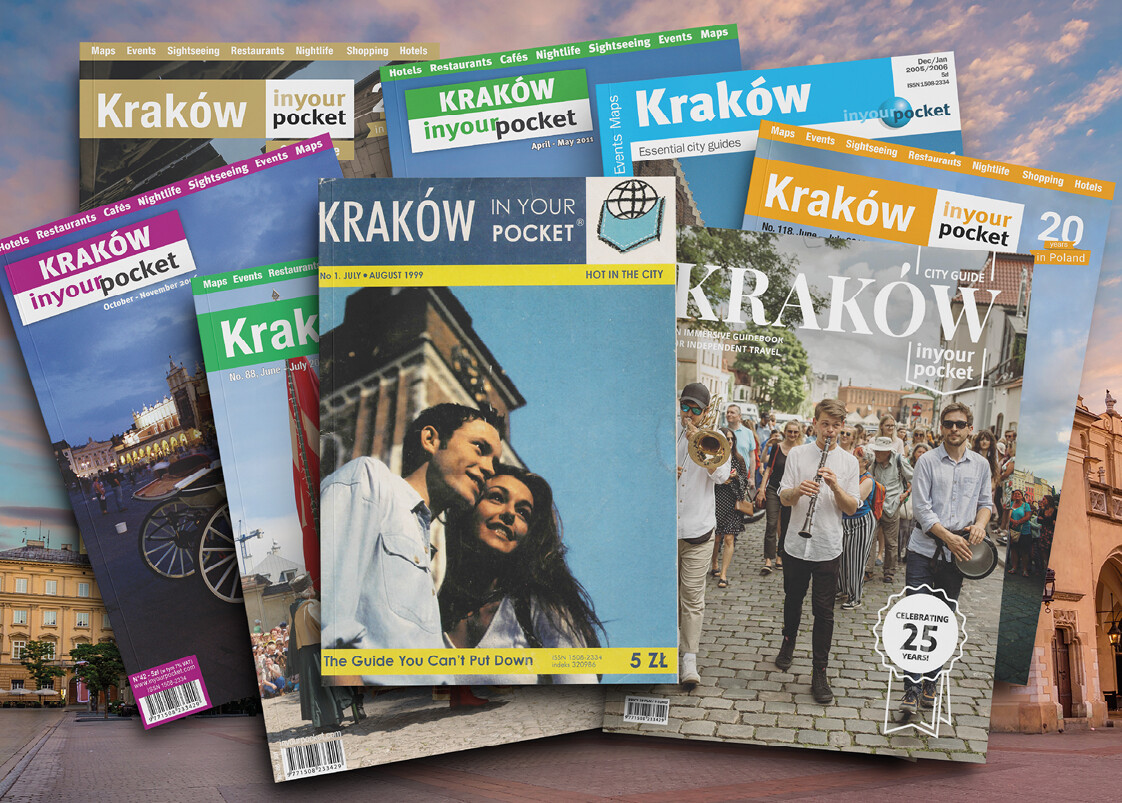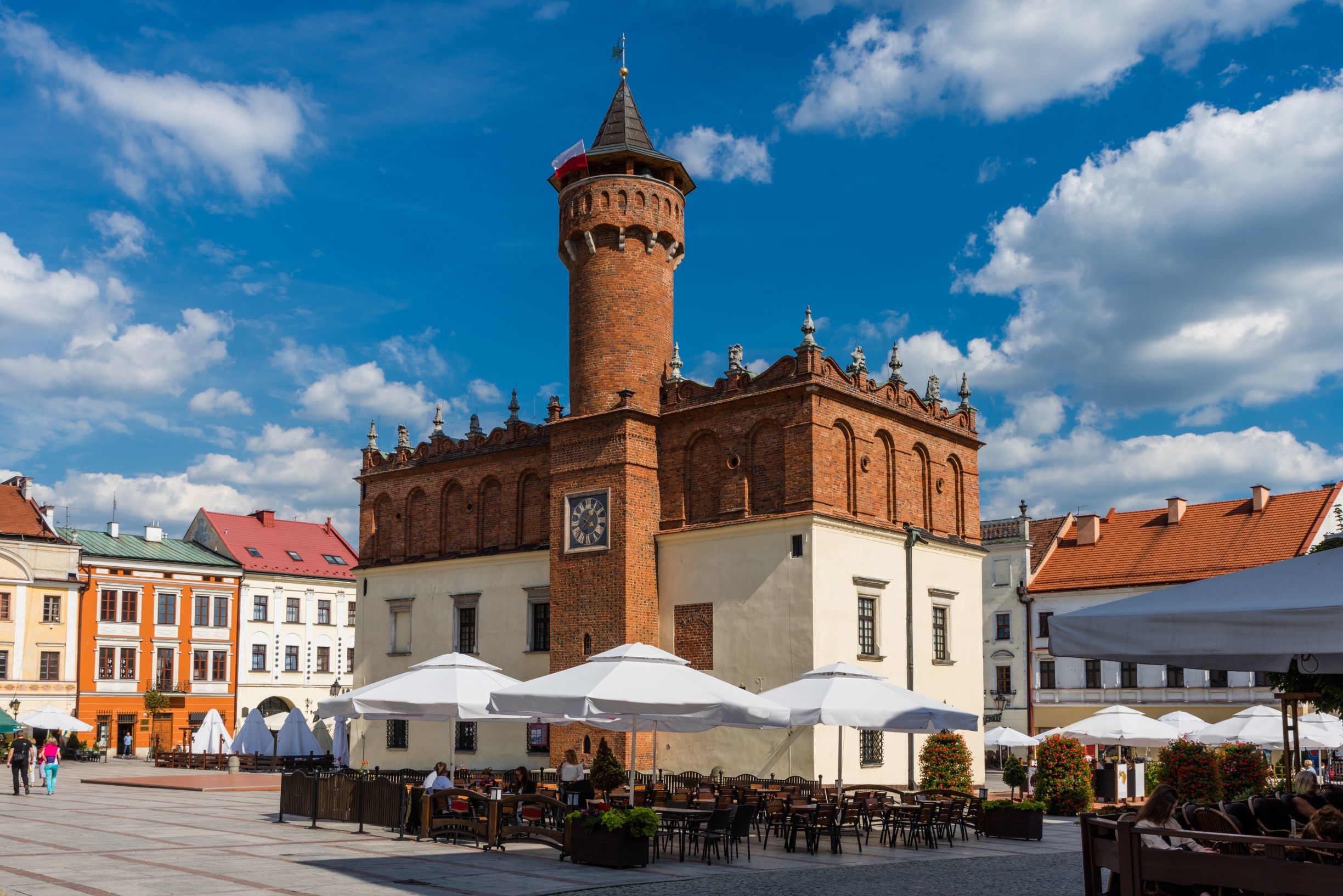Kraków's history is long and complex; contemporary attention spans, unfortunately, are short and simple. As such, we've boiled down Kraków's over-1000-year history into an easy-to-digest bullet-point timeline of the city's most memorable moments. If you can actually decipher paragraphs and punctuation, you might prefer our properly written, and yet still extremely succinct, full history of Kraków. In either case, follow the links for more in-depth info on the city's historical happenings.
966: First written record of the city
990: Incorporated into the Piast dynasty
1000: Kraków bishopric established
1038: Kraków becomes the capital of Poland
1241: The beginning of 50 years of Mongol mayhem
1257: Kraków granted municipal rights
1320: Coronation of King Władysław the Short in Wawel Cathedral, the first royal coronation in Kraków
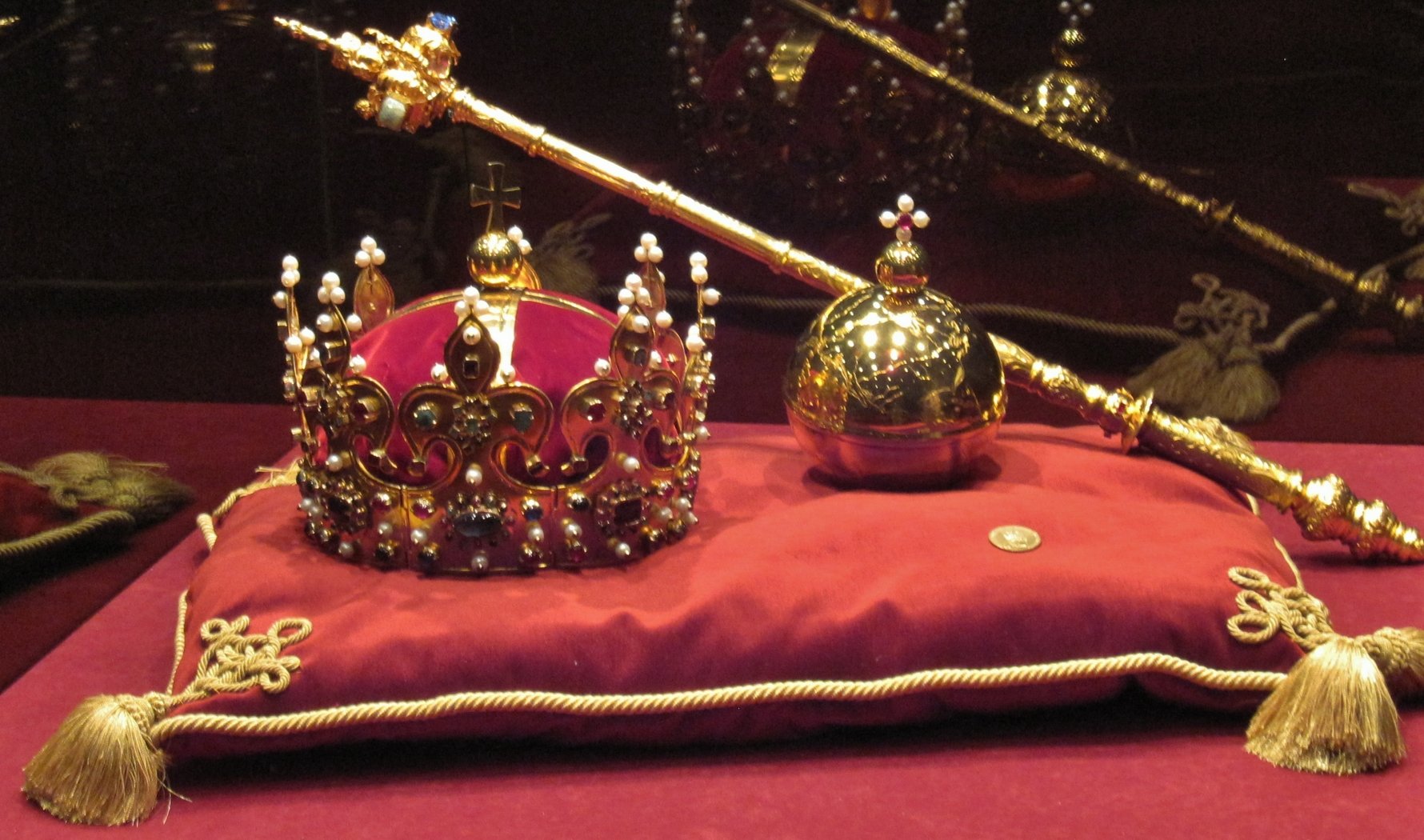
Modern replica of the 'Crown of Bolesław I' used at the coronation of Władysław the Short.
1335: Kazimierz is founded on the eastern bank of the Wisła River
1364: Jagiellonian University founded
1386: Kraków wedding of Polish Queen Jadwiga and Lithuanian grand duke Jagiełło creates the Polish-Lithuanian Commonwealth
1596: Polish capital moved to Warsaw
1655: Swedish army captures and devastates the city
1683: King Jan III Sobieski leads his Polish army from Kraków to Vienna, defeating the Ottoman Empire and saving Christian Europe

Sobieski delivering a message of victory to the Pope after the Battle of Vienna.
1734: Coronation of King August III, the final coronation in Wawel Cathedral
1772: Austrian, Russian and Prussian troops simultaneously invade the Polish-Lithuanian Commonwealth; First Partition of Poland
1791: The May 3rd Constitution is passed; the Second Partition of Poland soon follows
1794: Prussian army captures Kraków after the Kościuszko Uprising; city’s regalia stolen and lost forever
1796: Kraków becomes part of Austrian Galicia after the Third Partition of Poland
1807: Napoleon establishes the Duchy of Warsaw, to which Kraków is added in 1809
1816: The Free City of Kraków is established and becomes a hotbed of Polish political activism
1846: The brief and ill-fated Kraków Uprising results in the end of the Free City of Kraków, returning it to Austrian Galicia
1918: Poland returns to the map of Europe after WWI
1939: Nazi occupation begins after Hitler's September invasion of Poland
1941: The Jewish Ghetto is established in the Podgórze district
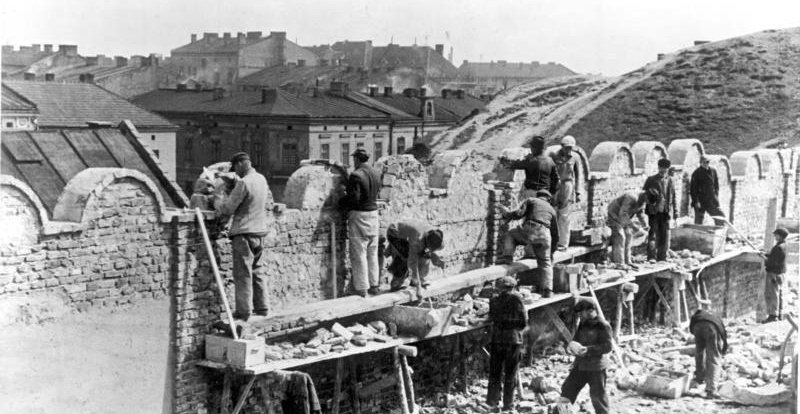
Building a wall around the Kraków Ghetto, 1941.
1942: Establishment of the Płaszów concentration camp in Podgórze
1943: Liquidation of the Kraków Ghetto
1945: Kraków ’liberated’ by the Soviet Army
1947: Construction begins on Nowa Huta
1978: Kraków’s Old Town, Wawel and Kazimierz added to the UNESCO World Heritage List; Karol Wojtyła inaugurated as Pope John Paul II
1981: Martial law declared in Poland
1983: Martial law lifted; Lech Wałęsa wins the Nobel Peace Prize
1989: First free elections in Poland in 45 years; Communist regime crumbles

Solidarity supporters at an election rally in Gdynia, 1989.
1999: Poland joins NATO
2000: Kraków is the first Polish city to be named 'European Capital of Culture'
2002: 2.5 million people gather on the Błonia to participate in a mass by Pope John Paul II
2004: Poland joins the European Union
2005: Pope John Paul II passes away plunging PL into national mourning
2010: President Lech Kaczyński and 95 other Polish delegates die in a plane crash near Smoleńsk, Russia; Kaczyński and his wife Maria are controversially buried in the Royal Crypts at Wawel
2012: Poland co-hosts the Euro 2012 football tournament with Ukraine
2013: Kraków is designated official UNESCO 'City of Literature'
2016: Kraków hosts Pope Francis during Catholic World Youth Day
Kraków Historical Timeline
966: First written record of the city
990: Incorporated into the Piast dynasty
1000: Kraków bishopric established
1038: Kraków becomes the capital of Poland
1241: The beginning of 50 years of Mongol mayhem
1257: Kraków granted municipal rights
1320: Coronation of King Władysław the Short in Wawel Cathedral, the first royal coronation in Kraków

1335: Kazimierz is founded on the eastern bank of the Wisła River
1364: Jagiellonian University founded
1386: Kraków wedding of Polish Queen Jadwiga and Lithuanian grand duke Jagiełło creates the Polish-Lithuanian Commonwealth
1596: Polish capital moved to Warsaw
1655: Swedish army captures and devastates the city
1683: King Jan III Sobieski leads his Polish army from Kraków to Vienna, defeating the Ottoman Empire and saving Christian Europe

1734: Coronation of King August III, the final coronation in Wawel Cathedral
1772: Austrian, Russian and Prussian troops simultaneously invade the Polish-Lithuanian Commonwealth; First Partition of Poland
1791: The May 3rd Constitution is passed; the Second Partition of Poland soon follows
1794: Prussian army captures Kraków after the Kościuszko Uprising; city’s regalia stolen and lost forever
1796: Kraków becomes part of Austrian Galicia after the Third Partition of Poland
1807: Napoleon establishes the Duchy of Warsaw, to which Kraków is added in 1809
1816: The Free City of Kraków is established and becomes a hotbed of Polish political activism
1846: The brief and ill-fated Kraków Uprising results in the end of the Free City of Kraków, returning it to Austrian Galicia
1918: Poland returns to the map of Europe after WWI
1939: Nazi occupation begins after Hitler's September invasion of Poland
1941: The Jewish Ghetto is established in the Podgórze district

1942: Establishment of the Płaszów concentration camp in Podgórze
1943: Liquidation of the Kraków Ghetto
1945: Kraków ’liberated’ by the Soviet Army
1947: Construction begins on Nowa Huta
1978: Kraków’s Old Town, Wawel and Kazimierz added to the UNESCO World Heritage List; Karol Wojtyła inaugurated as Pope John Paul II
1981: Martial law declared in Poland
1983: Martial law lifted; Lech Wałęsa wins the Nobel Peace Prize
1989: First free elections in Poland in 45 years; Communist regime crumbles

1999: Poland joins NATO
2000: Kraków is the first Polish city to be named 'European Capital of Culture'
2002: 2.5 million people gather on the Błonia to participate in a mass by Pope John Paul II
2004: Poland joins the European Union
2005: Pope John Paul II passes away plunging PL into national mourning
2010: President Lech Kaczyński and 95 other Polish delegates die in a plane crash near Smoleńsk, Russia; Kaczyński and his wife Maria are controversially buried in the Royal Crypts at Wawel
2012: Poland co-hosts the Euro 2012 football tournament with Ukraine
2013: Kraków is designated official UNESCO 'City of Literature'
2016: Kraków hosts Pope Francis during Catholic World Youth Day
